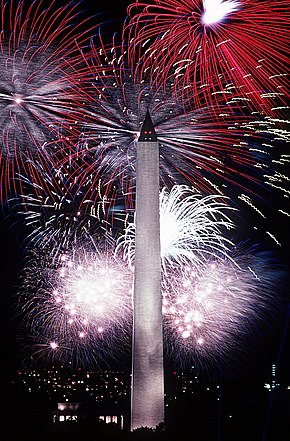
With all-American Fourth of July festivities like fireworks, frankfurters, and hamburgers, we continually construct our identification with an imagined community, as Benedict Anderson emphasized thirty years ago. Like the nation, the values that we associate with the United States, (e.g., democracy, equality, and liberty) are imagined constructs whose conceptions shift over time.
The United States is a nation of immigrants with the Statue of Liberty welcoming the “huddled masses” one of those frequently invoked traits. Beyond questions over the place of Native Americans in the nation of immigrants and contemporary debates over “immigration reform” and “border security,” the recent court case involving a yoga program in the Encinitas, California, public schools (which I have discussed previously here and here) illustrates the imagined nature of this national trait in a surprising way.
Presenting his decision 1 July, San Diego Superior Court Judge John Meyer reportedly asserted, “Yoga as it has developed in the last 20 years is rooted in American culture, not Indian culture. It is a distinctly American cultural phenomenon.” This statement, while possibly pulled out of context in a long presentation, suggests that being American, not foreign, alters the constitutionality of teaching yoga in public schools. The selection of the quotes by some media certainly gives the quote prominence. Highlighting her disagreement with the decision, Candy Gunther Brown, an Indiana University professor of religious studies who was the expert witness for the Plaintiffs opposing the program, suggested a similar point. She wrote that the judge’s flawed standard leaves children “with no protection from religious indoctrination by new or unknown religions that children have neither age nor experience to recognize as ‘religious’” (emphasis added). Despite their disagreement on other points, they both imply that being foreign, unknown, etc., makes a program problematic. That is a rather odd claim for a nation of immigrants who celebrate the (arbitrarily selected) anniversary of the nation’s founding with “foreign” things like fireworks, frankfurters, and hamburgers.
Taking liberties with the character of the nation, though, is certainly not unusual when people argue publicly for a policy or collective action (spreading democracy, extending equal rights, defending liberties), even when humanities scholars are the ones making the argument that the humanities are relevant to maintain democracy.
